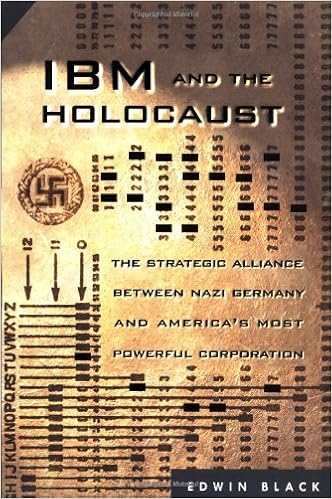The book documents the involvement of IBM, through its German subsidiary Dehomag (Deutsche Hollerith-Maschinen Gesellschaft mbH), in the systematic rounding up and destroying og the Jews in Germany before and during the second World War.
The main message of the book is straightforward: "processing" (apologies for the term) the people involved was a massive information processing and recording task which would have been simply impossible without automation. And such automation took the form of punch chard machinery, in thousands of installations, developed by IBM and leased by its German subsidiary Dehomag. Moreover, IBM was the sole supplier of the cards as well, more than a billion of them.
Was it good?
The book is chillingly good. The story is even quite unbelieveable, but I take the reported 2003 award as the best non-fiction book by American Society of Journals and Authors evidence of its credibility.
Moreover, the source documents cited throughout the book (e.g. meeting minutes, original punch cards and contemporaneous newspaper articles) add to the weight of the story.
It must be noted, however, that according to the author, IBM's incentive was in making profits, plain and simple, instead of any sinister plot against this or that ethnic group or a support for any particular repressive political agenda.
The main take-away for me?
For me, perhaps the greatest revelation was the sheer magnitude of information to be processed, relayed and recorded that the Nazi undertakings required. This is not to downplay any of the atrocities of the regime, but to note that this perspective is not too often appreciated.
Furthremore, this should make one think about the current landscape of personal information, where quite detailed and intimate knowledge is in centralized possession of entities such as Google and Facebook -- combined with vastly greater technical capacity to record and process such information than was the case some 70 years ago.
Who should read the book?
The book is practically compulsory reading for anyone who is interested in the second World War, or war history in general. Moreover, I think that the book should be interesting for the general audience as well.
The book on Amazon.com: IBM and the holocaust

No comments:
Post a Comment